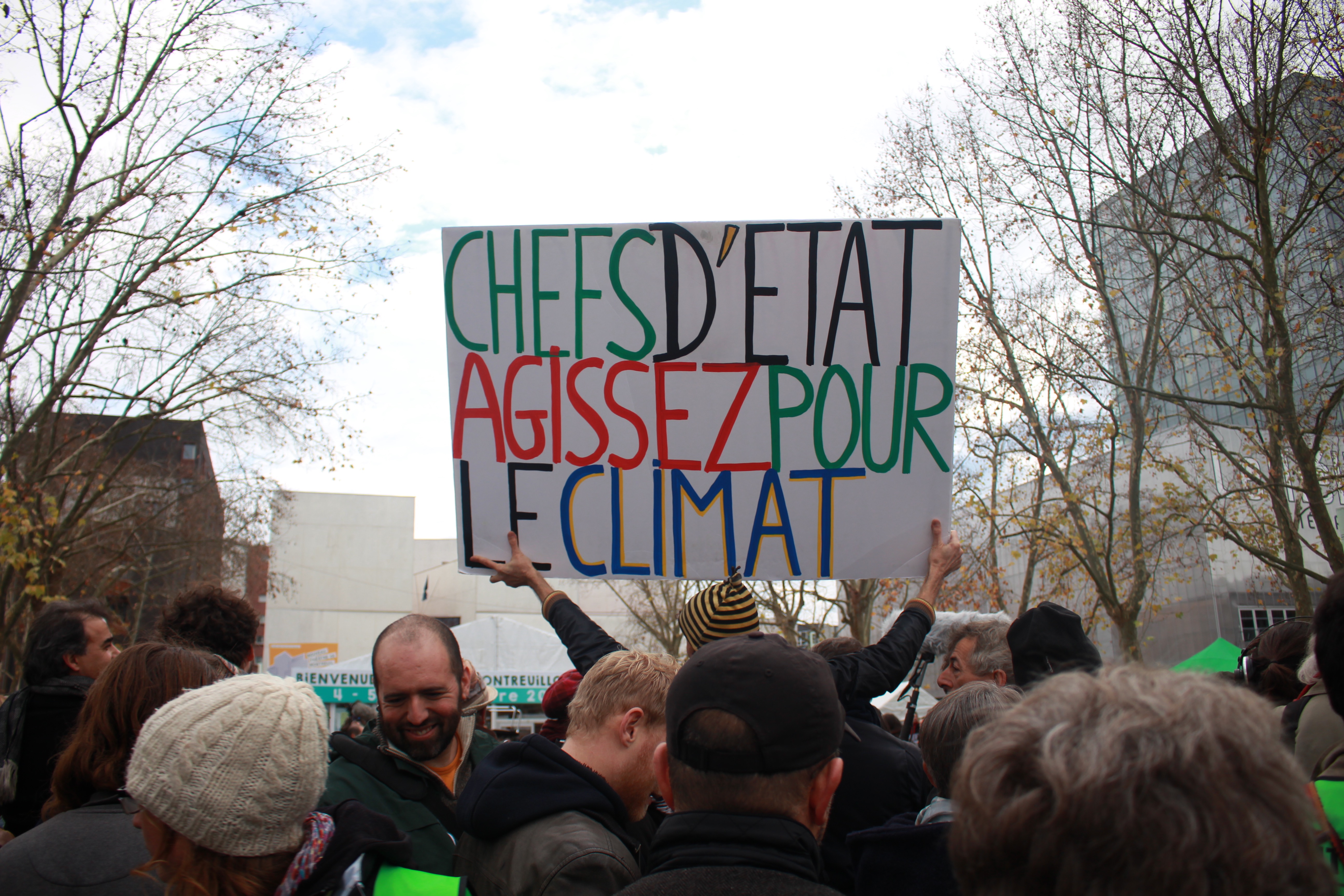rabble is expanding our Parliamentary Bureau and we need your help! Support us on Patreon today!
The United Nations (UN) Climate Change Conference of the Parties (COP21) started last week in Paris.
COP21 serves as the platform for a series of international discussions intended to keep in check future greenhouse gas emissions. The goal is to strike an agreement that would keep global temperatures below 2 C for the years to come, and therefore to abide by the UN Framework Convention on Climate Change (UNFCCC) principles adopted during the Rio de Janeiro Earth Summit in 1992. The conference will wrap up by the end of today, with the hope of reaching a consensus on such an agreement.
The People’s Climate Summit, an alternative response to COP21 unfolded concomitantly. It took place between December 5 and 6 2015 in Montreuil, an arrondissement on the outskirts of Paris (arrondissements are the administrative divisions delineating the Greater Paris Area, each with their own municipal system of governance).
A few of us from the Anti-Chevron Committee Canada have come to Paris to attend some of the COP21 talks. Most of our work focuses on the impact of multinational corporations on climate change, therefore we also wanted to see what the People Climate Summit is all about and connect with other environmental and transnational organizations doing similar work.
We left the city on early Sunday morning, from Richelieu Drouot, the metro station close to our hotel. In about a half hour we descended in Montreuil. We found ourselves in the middle of the citizen’s summit as soon as we came out of the subway. There were several rows of local vendors, selling anything from Lavandin hand cream to bison sausages, cheese, wine, and crepes, as well as independently produced books and magazines.
We stooped at the Lavandin crème stand and had a quick chat with the merchants. The main idea of the summit was to draw attention on the already-working and already-practiced solutions tackling climate change(s) on a daily basis, hence the focus on locally produced goods. The Summit was hosted by Coalition Climat 21, a network of over 130 civil society organizations, created by Le Réseau Action Climat (RAC) — France, the Centre de Recherche et d’ Information pour le Développement (CRID) and ATTAC France — an international organization opposing free trade, globalization and neoliberalism.
We have learned that it was the municipality of Montreuil that was endowing the initiative and a declaration of support from Patrice Bessac, the Mayor of Montreuil was appended on the flap side of the program. We were told to go inside a closed pavilion, pick up some flyers, and attend an afternoon talk on the issue of climate justice for migrants and migrant communities.
Inside the pavilion we have learned about many unconventional initiatives, including climate specific models of social accountability, self-management and ecological alternatives (e.g. preservations of agricultural areas and models of community reforestations), workshops on mobilization strategies, civil disobedience training sessions, as well as thinking sittings on issues encompassing anything from inequality, poverty and (un)employment to environment, energy, democracy and free trade agreements.
One initiative that drew our attention was a program developed by the Montreuil Department of Solidarity and Cooperation, aimed to facilitate the long-term access to drinking water in Beit Sira, Palestine. Congruent with Montreuil’s long-standing communist tradition of building local and transnational solidarity, this participative effort seemed to have mobilized all stakeholders in the area, from inhabitants to elected representatives, teachers and farmers.
The afternoon talks we attended, while unique and interesting, were focused for the most part on providing individualized solutions to systemically induced problems. Discussions have generally touched on the commonly entranced market state liaison — the role of the state shifting from supporting its people to supporting the market, hence subsidizing multi-national corporations — however attention mainly focused on singular models of alternative action. Singular patterns of organic food distribution in disadvantaged neighbourhoods, specific experiences of climate justice activism, or particular resistance and solidarity efforts, solely presented to be easily transplanted from one geopolitical context into another.
What was missing, in my mind anyway, was a comprehensive transnational yet concrete framework of corporate accountability for keeping liable the very same corporations producing most of the environmental and human rights abuses associated with negative climate changes.
It was then surprising that even at the alternative People’s Climate forum, little was said about the existent agreement proposed by Ecuador at the UN Human Rights Council in September 2013, which recommended a legally binding international instrument to hold accountable transnational companies, for when domestic jurisdictions prove insufficient to do so. The agreement was ratified in Geneva at the 2nd Forum on Business and Human Rights in December 2014 and adopted in June 2014 by the UN Human Rights Council. It was fully endorsed by many Global South nations, being favourably voted at the UN by the African Group, the Arabic Group, Pakistan, Sri Lanka, Kyrgyzstan, Cuba, Nicaragua, Bolivia, Venezuela and Peru.
This resolution is already adopted and could serve as a real hands-on, practical answer to guide corporate responsibility vis-à-vis climate change issues.
Of course alternative summits have always represented unorthodox options to the mainstream negotiations taking place during these UN summits. Whereas it is great to get together, sing, hug, talk and build solidarity efforts, there is also a need for social responsibility in terms of using what we have at hand to create immediate change, fight back against transnational corporatism and provide applicable remedies for the victims of affected communities.




